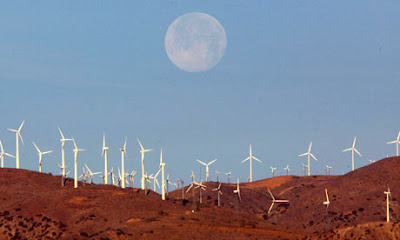The Breaking Point
By PETER MAASS. NY Times
Published: August 21, 2005
"In the past several years, the gap between demand and supply, once considerable, has steadily narrowed, and today is almost negligible. The consequences of an actual shortfall of supply would be immense. If consumption begins to exceed production by even a small amount, the price of a barrel of oil could soar to triple-digit levels. This, in turn, could bring on a global recession, a result of exorbitant prices for transport fuels and for products that rely on petrochemicals -- which is to say, almost every product on the market. The impact on the American way of life would be profound: cars cannot be propelled by roof-borne windmills. The suburban and exurban lifestyles, hinged to two-car families and constant trips to work, school and Wal-Mart, might become unaffordable or, if gas rationing is imposed, impossible. Carpools would be the least imposing of many inconveniences; the cost of home heating would soar -- assuming, of course, that climate-controlled habitats do not become just a fond memory. "
Published: August 21, 2005
"In the past several years, the gap between demand and supply, once considerable, has steadily narrowed, and today is almost negligible. The consequences of an actual shortfall of supply would be immense. If consumption begins to exceed production by even a small amount, the price of a barrel of oil could soar to triple-digit levels. This, in turn, could bring on a global recession, a result of exorbitant prices for transport fuels and for products that rely on petrochemicals -- which is to say, almost every product on the market. The impact on the American way of life would be profound: cars cannot be propelled by roof-borne windmills. The suburban and exurban lifestyles, hinged to two-car families and constant trips to work, school and Wal-Mart, might become unaffordable or, if gas rationing is imposed, impossible. Carpools would be the least imposing of many inconveniences; the cost of home heating would soar -- assuming, of course, that climate-controlled habitats do not become just a fond memory. "



Comments